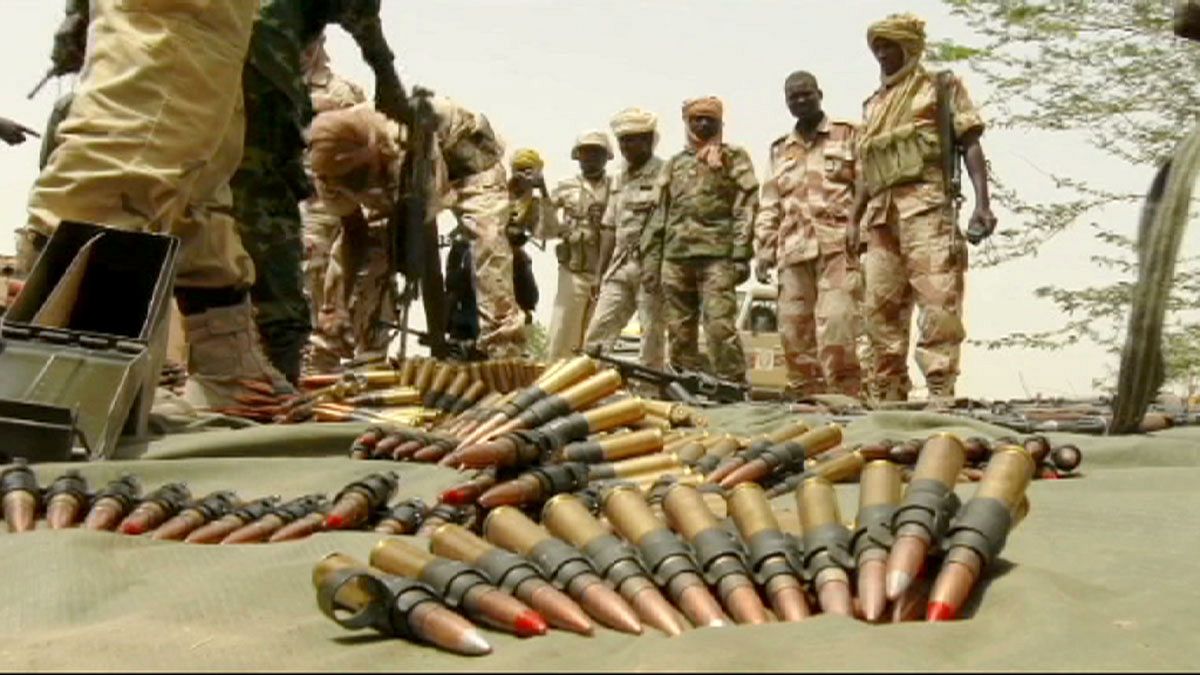Exclusive: Euronews gained first-hand experience of the fight against Boko Haram when our correspondent, Luis Carballo, joined African coalition
Exclusive: Euronews gained first-hand experience of the fight against Boko Haram when our correspondent, Luis Carballo, joined African coalition forces in northern Nigeria.
Liberation of Malam Fatori
He witnessed what remains of Malam Fatori. Lying on the border with Niger, it is the latest Nigerian village to be liberated from the militant group.
Boko Haram had control of Malam Fatori from November 2014 to March 31, 2015, when joint forces from Chad and Niger drove out the Islamists.
The Chadian army speaker says the village is strategically important as Boko Haram was using it as a base from which to direct attacks north into Niger and east, towards Lake Chad.
Its liberation represents a victory for the coalition forces, but the militants didn’t leave without a fight, as one woman told euronews.
“When Boko Haram arrived five months ago, we left the town and hid in the forest for a while. And then we came back,” she said. “Boko Haram seized young women and forced them to marry their fighters. Before they left the town, they grabbed the girls and slaughtered the rest. The fighters escaped in all directions.”
Another woman added:
“Before Boko Haram arrived, there were plenty of people living here, but now there’s almost nobody.”
The town is a shadow of its former self, residents tell us, destroyed by Boko Haram before their fighters fled. Burned-down houses and empty streets seem to corroborate their tale.
Our correspondent says he saw no civilian men or young women in the village, just older females and children. Some of them spoke of the hardships they faced under Boko Haram rule. The group is said to have strictly and brutally imposed its own interpretation of Sharia law on the inhabitants.
Soldiers upbeat
Despite the losses suffered in the village, Luis Carballo reports the mood among the coalition soldiers is good.They feel, he says, as though they are winning in the fight against the rebels.
He adds:
“The war against Boko Haram is being fought on the borders of Nigeria, Chad, Niger and Cameroon. Armed participation in this offensive, particularly by the Chadian troops, is changing the situation and, for the first time in many years, the jihadists are losing ground.”
A stock of weapons is held at the coalition forces’ base camp, around a kilometre from Malam Fatori village.
Army forces tell euronews the stockpile was taken from Boko Haram fighters who were killed in the struggle for the village.
Nigeria criticised
Locals fear the rebels will return if the coalition forces leave. For the moment, they will stay until Nigerian army forces arrive to take control of the town.
However, Nigeria has come under criticism from Chadian President Idriss Déby, who says the country has been absent in the fight against Boko Haram and has not taken control of towns and cities liberated by the joint task force.
How does Boko Haram operate?
Boko Haram’s modus operandi is well-known. Its preferred technique is to ambush; attacking very quickly and often at night, to take their foe by surprise. Thousands of civilians have been killed in such strikes across Nigeria, Chad, Niger and Cameroon.
The militant group announced its affiliation to ISIL at the beginning of March. 2015.
More from Luis Carballo
My next report from Chad: security reinforced in N'Djamena's NGueli Bridge due to Boko Haram threat. On air tomorrow. pic.twitter.com/9jXS5yuoWO
— Luis Carballo (@granangular) April 1, 2015
